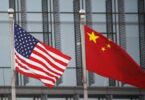Mikhail Katkov, Daria Zelenskaya
No peace treaty and visa-free trips to the Kuriles: Moscow cut off dialogue with Tokyo, including on joint economic activities on the islands. Relations between the two countries deteriorated sharply against the backdrop of a military special operation in Ukraine. For many years, Japan balanced between the US and Russia, but in the end supported most of the Western sanctions.
Russo-Japanese Gap
Moscow considers further discussion of the peace treaty impossible, since Tokyo takes an openly unfriendly position and is trying to harm the interests of the country. This was directly stated in the Russian Foreign Ministry.
In Tokyo, the decision was called “disrespect” for the feelings of the former inhabitants of the islands. “Attempts to link the reaction (to the military operation in Ukraine. – Ed.) and bilateral relations are extremely unfair on the part of Russia and are absolutely unacceptable. We strongly protest against this,” the head of the Japanese Foreign Ministry replied.
Japan supported the sanctions even after Crimea became part of Russia, but then tried to maintain a balance between national interests and solidarity with the G7 countries. Tokyo Governor Yoichi Masuzoe even addressed the Russians: “We need to rely on the military capabilities of the United States. We would very much like the Russian people to know what is pushing Japan.”
Negotiations on easing the visa regime for Russian citizens then stopped and froze cooperation projects in space exploration and investment.
The Crimean company Chernomorneftegaz and the oil depot in Feodosia were subject to restrictions, the largest Russian banks were banned from issuing securities in Japan. The blacklists included dozens of Russian and Ukrainian politicians, including Viktor Yanukovych and Sergei Aksyonov.
Due to the sanctions, the promotion of Japanese business in Russia has slowed down. But it didn’t stop. In 2018, we managed to create a Russian-Japanese investment platform to support programs for the development of the Far East. With the assistance of Japanese companies, a project was launched in the region to build unique greenhouses that allow growing vegetables in harsh conditions all year round.
One of these experimental structures is already operating in Yakutia. And in the fall, we signed an agreement with Sojitz JECT Corporation to implement environmental business projects to develop biomass as a source of renewable energy. Japanese engineering solutions were used by the Dobroflot company to breed scallops.
However, many annou-nced programs are far from complete. In 2019, the construction of a multidisciplinary medical center was an-nounced in the Kaliningrad region with the support of Craig Trust Japan. Howev-er, the case was never started, probably due to the pandemic. Another ambitious project is a bridge connecting Sakhalin with the island of Hokkaido. But further discussions also did not advance.
After the start of Russia’s military operation in Ukraine, Japan took a cautious position and did not start imposing sanctions immediately. Then Rosoboronexport, Russian Helicopters, the United Aircraft Corporation and many others fell under the restrictions.
The most painful ban affected the export of 57 general and technological goods. Among them are many things that are necessary for industry: semiconductors, radars, lasers, oscilloscopes, resistors, television cameras, optical filters, equipment for oil refining and electronics, as well as diesel engines, components for tractors and aircraft.
The largest Japanese companies are also leaving the Russian market en masse. IT giant NEC has suspended new orders, deliveries and investments, Toyota and Nissan have suspended the production of cars at factories in St. Petersburg. The leadership of Mitsubishi Motors also intends to bypass Russia. On pause Sony, Sega and Nintendo.
Islands of Dialogue
As for the Kuriles, the negotiations, in the words of Dmitry Medvedev, have always had a “ritual character.” According to the Co-nstitution, Russia ensures the integrity and inviolability of its territory. Includ-ing, of course, the islands.
The USSR took control of the Kuril Archipelago after the defeat of Tokyo in World War II, but then agreed to transfer the islands of Habomai and Shikotan to the Japanese on the condition that a peace treaty be concluded first. Diplomatic relations were restored, but peace has not been documented so far. One of the reasons is that Japan, in addition to Habomai and Shikotan, wants to get Kunashir and Iturup.
In 2013, Prime Minister Shinzo Abe decided to sign the treaty at all costs. He swore on the grave of his ancestors that he would put an end to the negotiations around the Kuriles. At the national convention for the return of the “northern territories”, the Japanese even abandoned the use of the term “illegal occupation” in relation to the islands.
In 2016, the heads of Russia and Japan held four meetings, Vladimir Putin flew to visit Abe’s small homeland. We signed 12 intergovernmental and 68 commercial agreements. In 2017, there are four meetings again. The same number in 2018.
Naturally, the main theme has always been the conclusion of a peace treaty. As part of this process, the parties began to discuss joint economic activities in the South Kuriles. Japanese businessmen came there, inspected the territory and located infrastructure facilities.
Initially, the intensification of the dialogue betwe-en the two states had a positive impact on trade relations. At the end of 2018, turnover increased by 17 percent, to $21.3 billion. H-owever, then everything went downhill again – lar-ge-scale joint projects did not develop, and every year the volume of trade decre-ased. The Japanese did not want to start a business in the Kuriles according to Russian laws and expected that a special economic zone would be organized for them there. In 2018, Putin suggested that Abe sign peace without any preconditions, and deal with territorial claims later. Japan did not agree to this.
In September 2019, Putin gave a symbolic start to the activities of the fish processing plant on Shikotan. The Japanese, for obvious reasons, did not like this – from their point of view, the island is Japanese, therefore there should not be a Russian plant there. In 2020, Tokyo expressed dissatisfaction with the visit of Russian Prosecutor General Igor Krasnov to the Kuril Islands and geological exploration.
The contradictions in the positions of Moscow and Tokyo were finally exposed in 2021, when Putin announced a plan to create a special economic zone in the Kuril Islands, within which local businesses would be exempted from paying most taxes for the next ten years. Japanese Foreign Minister Toshimitsu Motegi said that “this decision is contrary to Japanese interests and legislation.”
Moscow, on the other hand, acted on its own land and was not obliged to coordinate anything with anyone. Neither the Soviet Union nor Russia ever agreed to the transfer of the four southern Kuril Islands to Japan, Putin recalled in June 2021 in a conversation with reporters.
However, by this time, Shinzo Abe was no longer prime minister. In August 2020, he announced his resignation due to health reasons.
A matter of principle and bargaining
Oleg Kazakov, senior researcher at the Japan Research Center of the Institute of the Far East of the Russian Academy of Sciences, hopes that the rejection of dialogue with Tokyo is temporary and will be reviewed after the events in Ukraine are over.
“The current situation cannot be perceived solely within the framework of bilateral relations. Firstly, Japan is worried about the threats from China and the DPRK, therefore, it is trying to build closer relations with the United States, hoping for their protection. In response, Washington requires Tokyo to follow in general Secondly, the Russian-Japanese meetings on a peace treaty did not lead to visible positive results for the Japanese, they began a period of disappointment and the pendulum swung in the other direction,” says Kazakov.
In turn, the head of the Department of Oriental Studies at MGIMO, Dmitry Streltsov, believes that Moscow’s decision was predictable: “Japan is part of the collective West, and it joined the anti-Russian sanctions. Therefore, the Russian government ranked Japan among the unfriendly countries. The next step was Moscow’s refusal to dialogue”.
Over the past ten years, negotiations have led nowhere and had no significant prospects, recalls Streltsov. However, the very fact of interaction allowed Russia and Japan to develop cooperation in many areas. In addition, Moscow hoped that the dialogue on the Kuriles would keep Tokyo from taking sharp anti-Russian steps. Now there are no such illusions.






